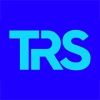8 Pharmaceutical Books That Separate Experts from Amateurs
Recommended by CNN’s Chris Cillizza, NYT’s Jane Coaston, and law professor Steve Vladeck for serious pharmaceutical study





What if understanding the pharmaceutical world could shift how you see everything from health policies to bedside care? The pharmaceutical industry shapes countless lives, yet its complexities often remain hidden behind jargon and corporate narratives. Today, this sector is under intense scrutiny, from ethical debates around opioid marketing to rapid advances in drug therapies.
Chris Cillizza, a CNN political analyst, and Jane Coaston, a New York Times journalist, both praise Empire of Pain for unveiling the human and ethical stakes behind pharmaceutical empires. Law professor Steve Vladeck highlights how this book offers more than corporate critique—it’s a call for empathy in understanding public health crises. Their insights complement the practical guidance found in nursing drug handbooks and clinical pharmacology texts authored by seasoned pharmacists and educators.
While these expert-curated books provide proven frameworks for learning, readers seeking content tailored to their background, experience, and specific pharmaceutical interests might consider creating a personalized Pharmaceutical book that builds on these insights, making your learning journey efficient and precisely targeted.
Recommended by Chris Cillizza
CNN political analyst and host
““Empire of Pain” is my favorite nonfiction book of the year. And absolutely incredible read.” (from X)
by Patrick Radden Keefe··You?
by Patrick Radden Keefe··You?
Patrick Radden Keefe, a seasoned journalist at The New Yorker, chronicles the rise and fall of the Sackler family, whose wealth was built on the pharmaceutical giants Valium and OxyContin. You’ll gain insight into the ruthless marketing tactics, legal battles, and the profound impact their drugs had on the opioid crisis. The narrative spans three generations, revealing how the family’s philanthropy masked a legacy of controversy and corporate power plays. This book suits you if you’re interested in pharmaceutical ethics, corporate accountability, or the socio-political forces shaping drug policy.
by Robert Kizior BS RPh, Keith Hodgson RN BSN CCRN··You?
by Robert Kizior BS RPh, Keith Hodgson RN BSN CCRN··You?
Robert Kizior, a retired pharmacist with extensive experience at Alexian Brothers Medical Center, crafted this handbook to meet the practical needs of nurses managing complex medication regimens. You’ll find detailed monographs on over 1,000 generic and 4,000 trade name drugs, including updated dosage forms, side effects, and nursing considerations framed within the nursing process. The inclusion of new FDA-approved medications and a special focus on IV drug administration equips you with current, actionable drug knowledge. This book serves those directly involved in patient care who require quick, reliable drug information to ensure safe and effective therapy.
by TailoredRead AI·
This tailored book explores the vast field of pharmaceutical science and practice with a focus on your specific interests and background. It covers essential pharmaceutical concepts, drug development processes, clinical applications, regulatory frameworks, and emerging trends, all carefully matched to your learning goals. By weaving together foundational knowledge with areas you want to prioritize, this personalized guide reveals how pharmaceutical expertise develops through both theory and real-world practice. It brings clarity to complex topics like pharmacokinetics, formulation science, and ethical considerations, making the learning experience both engaging and relevant to your aspirations.
by Bertram G. Katzung, Anthony J. Trevor··You?
by Bertram G. Katzung, Anthony J. Trevor··You?
Bertram G. Katzung, MD, PhD, draws on decades of pharmacology expertise at UCSF to present this detailed guide that bridges foundational science with clinical application. You’ll explore drug mechanisms, receptor functions, and the latest advances like pharmacogenomics and cannabis pharmacology, organized to mirror how pharmacology is taught in medical courses. Each chapter balances theory with clinical relevance, featuring case studies and summary tables that clarify complex drug interactions. This book suits you if you want to master pharmacological principles that underpin safe prescribing and patient care, especially in evolving therapeutic areas.
by Lippincott··You?
by Lippincott··You?
Lippincott Williams & Wilkins, a respected publisher in nursing and healthcare, created this extensive drug handbook to support nurses and clinicians with up-to-date medication information. You’ll find detailed nursing-focused drug monographs covering over 3,700 drugs, including new FDA-approved medications, with clear sections on dosages, interactions, and patient teaching. The handbook also addresses drug safety issues specific to the U.S. and Canada, featuring practical tools like Black Box warnings, tall-man lettering for look-alike drugs, and clinical alerts. If you’re involved in medication administration or pharmacology within nursing, this handbook equips you with the precise knowledge needed to navigate complex drug therapies confidently.
by April Hazard Vallerand PhD RN FAAN, Cynthia A. Sanoski BS PharmD BCPS FCCP··You?
by April Hazard Vallerand PhD RN FAAN, Cynthia A. Sanoski BS PharmD BCPS FCCP··You?
April Hazard Vallerand, a distinguished professor and nursing education leader, co-authored this guide to address the critical need for medication safety in clinical nursing practice. You gain detailed monographs on hundreds of generic drugs and thousands of trade names, with clear alerts on life-threatening side effects and patient-specific considerations. The book covers pharmacogenomics, IV administration, and offers practical tools like dosage calculators and case studies. If you're involved in nursing or healthcare and want reliable, up-to-date drug information tailored for safe administration across all patient populations, this guide delivers precisely that without unnecessary complexity.
by TailoredRead AI·
This tailored pharmaceutical guide explores focused actions to boost your understanding of the pharmaceutical world swiftly and effectively. It covers core concepts, drug mechanisms, regulatory environments, and emerging trends, all matched to your background and interests. By tailoring content to your specific goals, it reveals how to navigate complex pharmaceutical topics without unnecessary detours, enabling faster skill growth. This personalized approach ensures that you engage deeply with the aspects most relevant to your learning journey, from foundational knowledge to practical drug applications. Whether you're new or experienced, the book builds a clear, custom pathway through pharmaceutical knowledge, helping you grasp crucial ideas and apply them confidently.
by E. M. Falgout··You?
After analyzing the demands of the Pharmacy Technician Certification Board exam, E. M. Falgout crafted this study guide to focus precisely on the knowledge and skills you need to succeed. Drawing on Ascencia Test Prep's expertise, the book breaks down complex topics like pharmacology, pharmacy law, and pharmaceutical compounding into digestible sections, complete with practice questions and two full-length tests. You gain not only content mastery but also strategic test-taking tips designed to build confidence. This guide suits aspiring pharmacy technicians who want a focused, efficient resource to prepare thoroughly for certification without wading through extraneous material.
by Ascencia··You?
Ascencia Test Prep's extensive experience in healthcare education shines through this study guide tailored for pharmacy technician certification. You gain a focused review of key areas like pharmacology, pharmacy law, compounding, and pharmacy math, all aligned with the exam blueprint. The book offers practical tools such as practice questions, flash cards, and test tips, making it ideal for solidifying your knowledge and test readiness. Whether you're entering the field or seeking certification, this guide presents a thorough yet accessible approach to mastering the exam's core content.
by Jacqueline Burchum DNSc APRN BC··You?
by Jacqueline Burchum DNSc APRN BC··You?
Drawing from her extensive experience as an associate professor and assistant dean in advanced nursing programs, Jacqueline Burchum crafted this edition to clarify pharmacology for nurses navigating complex drug therapies. You gain a detailed understanding of drug prototypes, their mechanisms, and how they connect to nursing care, including updated FDA drug approvals and safety alerts. The book’s structure, like prototype drug tables and nursing implication summaries, helps you apply pharmacological principles directly to patient care across the lifespan. If you’re involved in nursing education or practice and want a resource that balances depth with clarity, this book fits well—though it’s less suited for casual readers or those outside healthcare.
Get Your Personal Pharmaceutical Strategy Now ✨
Stop guessing with generic advice. Unlock targeted pharmaceutical insights in 10 minutes.
Trusted by leading pharmaceutical professionals and educators
Conclusion
Across these eight titles, three themes stand out: the ethical challenges shaping pharmaceutical history, the vital role of nursing and clinical expertise in safe drug administration, and the importance of certification for pharmacy technicians aiming for professional excellence. If you’re grappling with understanding pharmaceutical ethics and corporate impact, start with Empire of Pain. For hands-on clinical practice, combine Saunders Nursing Drug Handbook 2024 with Lehne's Pharmacology for Nursing Care to bridge theory and bedside application.
Pharmacy technicians preparing for certification will find focused, actionable study in the two PTCB exam guides. Alternatively, you can create a personalized Pharmaceutical book to bridge the gap between general principles and your specific situation. These books can help you accelerate your learning journey and deepen your understanding of a complex, impactful field.
Frequently Asked Questions
I'm overwhelmed by choice – which book should I start with?
Start with Empire of Pain if you want to understand the industry's ethical background. For practical drug knowledge, Saunders Nursing Drug Handbook 2024 offers clear, up-to-date guidance.
Are these books too advanced for someone new to Pharmaceutical?
No. The PTCB Exam Study Guides are tailored for newcomers preparing for certification, while Lehne's Pharmacology for Nursing Care balances depth with clarity for learners at various levels.
What's the best order to read these books?
Begin with industry context through Empire of Pain, then move to clinical and nursing-focused handbooks like Saunders Nursing Drug Handbook 2024 and Davis's Drug Guide for Nurses. Finish with certification guides if relevant.
Can I skip around or do I need to read them cover to cover?
You can definitely skip around. Reference handbooks like Saunders and Davis are designed for quick consultation, while narrative books like Empire of Pain are best read straight through.
Which books focus more on theory vs. practical application?
Basic and Clinical Pharmacology 15e explores pharmacological theory and mechanisms, whereas Saunders Nursing Drug Handbook 2024 and Davis's Drug Guide for Nurses focus on practical drug administration and safety.
How can I get pharmaceutical knowledge tailored to my specific needs?
While these expert books provide solid foundations, personalized Pharmaceutical books can target your unique background and goals, bridging expert insight with your real-world challenges. Explore this option here.
📚 Love this book list?
Help fellow book lovers discover great books, share this curated list with others!
Related Articles You May Like
Explore more curated book recommendations







